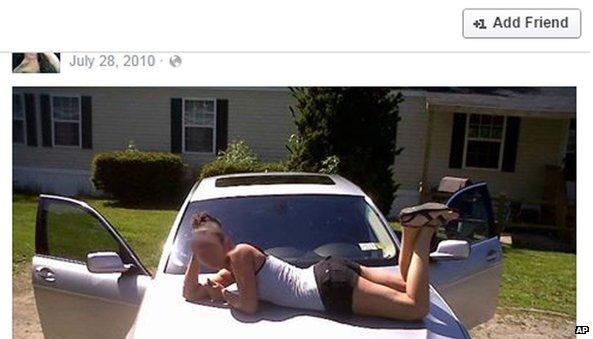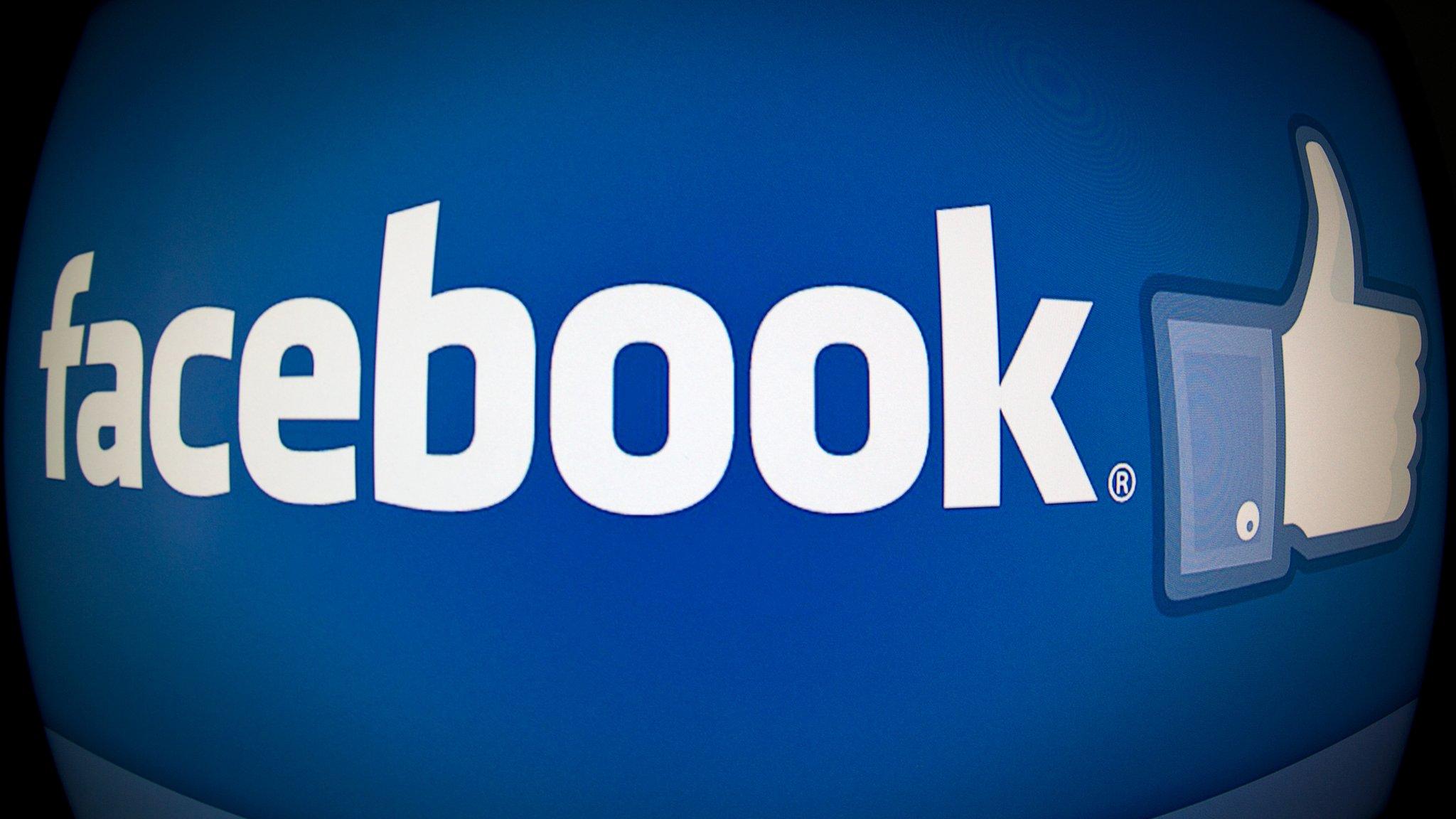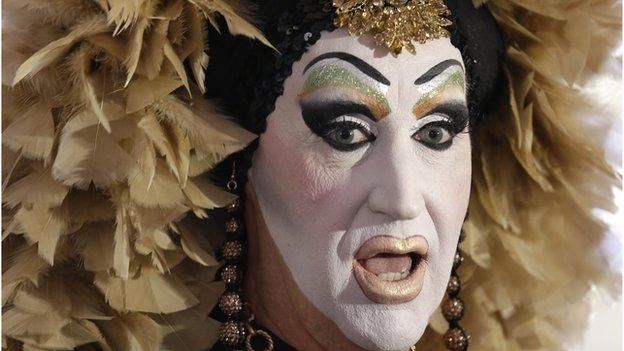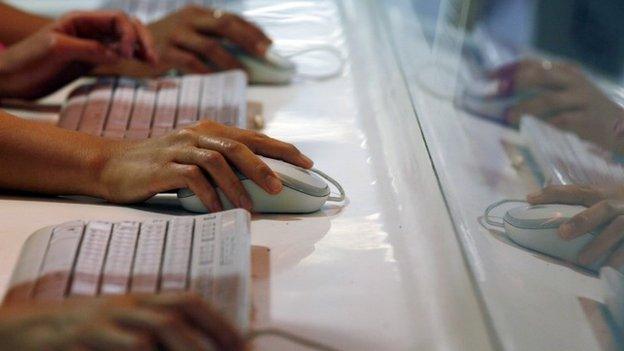Woman sues US government over fake Facebook page
- Published

The US government acknowledges that it did not notify Ms Arquiett that it would post her photos on Facebook (image blurred by BBC)
A woman is suing the US government after it created a fake Facebook page containing photos of her, including one that showed her half-clothed.
The Department of Justice acknowledged that one of its agents had created the page without telling Sondra Arquiett.
But it initially suggested that Ms Arquiett had "implicitly consented" to the action because she had granted officers access to her mobile phone.
The DoJ said it was now reviewing if the bogus page had been a step too far.
A trial is scheduled for next week in New York, with the US government and the Drugs Enforcement Administration (DEA) agent, Timothy Sinnigen, both named as defendants.
The case dates back four years, but was first reported by the news site Buzzfeed, external.
Pictures of children
The fake Facebook page was created after restaurant waitress Ms Arquiett was arrested in July 2010, and accused of being involved in a drugs ring.
She pleaded guilty to conspiracy to possess with intent to distribute cocaine, and was later sentenced to six months of weekend incarceration.
At the time of her arrest, Ms Arquiett surrendered her mobile phone and consented to officers accessing its data to help them with related criminal investigations.
This included an investigation into her boyfriend, Jermaine Branford, who was suspected of co-ordinating drug sales. He later pleaded guilty to conspiracy to distribute cocaine.
Ms Arquiett said she was not, however, notified that this operation would involve the creation of a "publicly available" Facebook page in the name of Sondra Prince, an alias she used.
It included photographs of her as well as images of her son and niece.
One photograph, her lawyers said, featured "the plaintiff in her bra and panties".
"When plaintiff learned of Sinnigen's actions, she suffered fear and great emotional distress because, by posing as her on Facebook, Sinnigen had created the appearance that plaintiff was wilfully co-operating in his investigation of the narcotics trafficking ring, thereby placing her in danger," they added.
Ms Arquiett said the action had breached her rights to privacy, equal protection under the law and due process, and has demanded more than $250,000 (£155,560) in damages.

A screenshot taken by AP indicates that the fake page had 11 "friends" before it was removed (images blurred by BBC)
The US government acknowledged that Mr Sinnigen had created the page and had used it to send a "friend" request to a wanted fugitive as well as accepting requests from others, but denied it had been made "publicly available" in a wider sense.
However, Buzzfeed and the Associated Press news agency were both able to access the page before it was taken offline.
The US government also recognised that one of the photos included showed Ms Arquiett "wearing either a two-piece bathing suit or a bra and underwear," but denied that the photograph should be characterised as being "suggestive".
'Laughable'
Regarding the wider allegation, the US government stated that Ms Arquiett had "relinquished any expectation of privacy she may have had to photographs on her cell phone" when she agreed to let officers search and use information on the device.
However, it acknowledged that she "did not give express permission for the use of photographs contained on her phone on an undercover Facebook page".
The Electronic Frontier Foundation (EFF), a US-based online privacy campaign group, has described the government's rationale as being "laughable".
But legal experts have said that the case might hang on exactly what Ms Arquiett had consented to.
Facebook's terms and conditions state that users cannot create accounts for others without permission, but a spokeswoman for the firm declined to comment on this specific instance.
- Published6 October 2014

- Published2 October 2014

- Published30 September 2014
